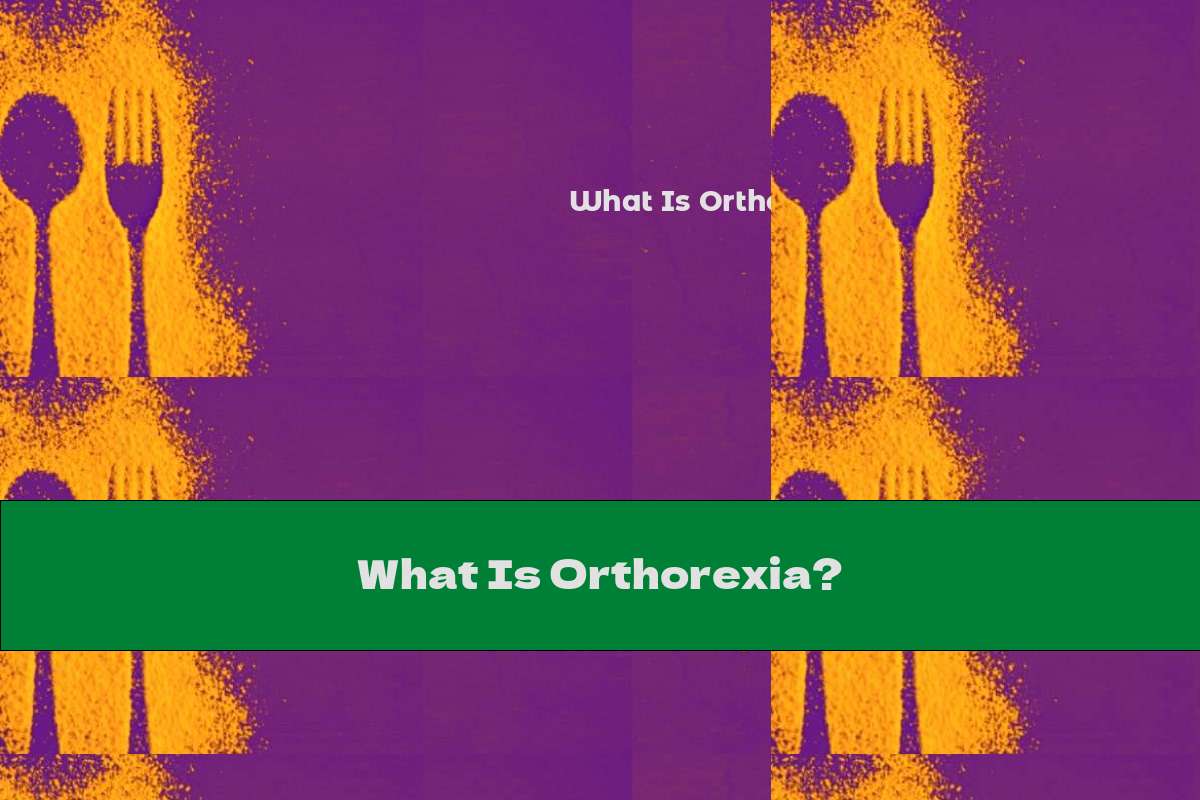What Is Orthorexia?
 Author: Dean Rouseberg
Time for reading: ~5
minutes
Last Updated:
February 21, 2026
Author: Dean Rouseberg
Time for reading: ~5
minutes
Last Updated:
February 21, 2026

First, sugar and gluten are sent to the black list, followed by dairy products and meat, and then fruits are banished (they provoke insulin resistance). The diet is getting poorer, and the focus on the purity of food is increasing. Let's find out why an obsession with proper nutrition can be much more harmful than a piece of pie on a plate.
Smoothie for breakfast, avocado toast with wild salmon for lunch, organic tomato and cucumber salad for dinner. This is what the ideal diet looks like according to Instagram bloggers promoting healthy eating .
Bowls of quinoa and plates of collard greens in the news feed are commonplace. Another secret of proper nutrition and a ban on this or that dish more and more often cause only mild irritation. We begin to compare our plate with what we see on the screen, and we will lose this battle for WSJ. But can there be any winners in this fight?
Understanding what is on your plate and how healthy the products in the refrigerator are is a good skill. However, sometimes it goes too far.
First, sugar and gluten are sent to the black list, followed by dairy products and meat, and then fruits are banished (they provoke insulin resistance). The diet is getting poorer, and the focus on the purity of food is increasing. Let's find out why an obsession with proper nutrition can be much more harmful than a piece of pie on a plate.
Orthorexia nervosa is a disease
For the first time, the American doctor Steven Bratman spoke about the obsession with healthy eating 25 years ago. He came up with the name Orthorexia , which in translation from ancient Greek means Correct. At first, the term was used somewhat ironically. However, later it became clear that the desire to eat as healthy, clean and correct food as possible is a serious problem that can be placed alongside anorexia and bulimia.
And although orthorexia nervosa is still not found in the diagnostic and statistical manual for mental disorders , that is, it is not officially considered a disease, nowadays specialists are increasingly paying attention to this eating disorder .
It's all Instagram's fault
Not the last role in the development of this eating disorder is played by social networks. Studies show that 42% of Instagram users also use it to get information and advice on nutrition . It's no surprise that the hashtag #food is in the top 25 most popular tags, along with selfies and pets.
Not so long ago, in 2017, scientists from Great Britain studied the behavior of Instagram users and came to an unexpected conclusion. Among those who subscribed to blogs about proper nutrition , 49% suffered from orthorexia nervosa . Moreover, those who spent more time on social networks had more serious symptoms. It doesn't sound very pleasant. In attempts to maintain health and improve their nutrition , people, without even noticing it, only worsened the existing problems in the relationship with food .
How to understand that everything is out of control
It is not always easy to understand where the line between a healthy lifestyle and orthorexia passes . In itself, the desire to choose quality products is completely natural. If we want to preserve health and youth, and at 55 look no worse than Hollywood stars, why not use all available methods for this?
To do this, everyone prepares salads, adds superfoods to the diet , avoids fast food and carefully studies labels. All of this is normal and not a disorder until enthusiasm turns into obsession. It can be determined thanks to the already known Steven Bratman test. Among the main diagnostic criteria of orthorexia , he named the following.
Food and only food
Go to the farmer's market for food , cook a healthy dinner, pack a lunch box for work, have lunch at the right time. A round-the-clock obsession with food seriously interferes with life and takes a significant amount of energy, attention and time. But those who suffer from orthorexia do not see this as a problem. They sincerely believe that they are taking care of their health, when in reality their mental and physical health is at risk.
Minus social connections
When the desire to maintain health turns into an obsessive idea that displaces all other joys of life, it's time to sound the alarm. Patients with orthorexia are so obsessed with clean eating that any thought of breaking the regime causes panic. For this reason, all places and events that can provoke it are carefully avoided.
Festive feasts with relatives, meetings with friends over a cup of coffee and dates over a glass of wine fall under the ban. Over time, acquaintances get used to whims and no longer call anywhere, simply because they cannot hear about the harm of sugar for the tenth time.
Less food
With orthorexia , there is a gradual - and therefore practically imperceptible - rejection of most products . At first, the taboo is imposed on one group of products , then on another, over time the diet becomes extremely minimal. Such a manic desire for correctness is not based on the doctor's indications, but solely on one's own conclusions and enthusiasm. For some reason, the result can be quite tragic, even fatal due to exhaustion of the body. Such cases have already been recorded, so orthorexia should be taken seriously.